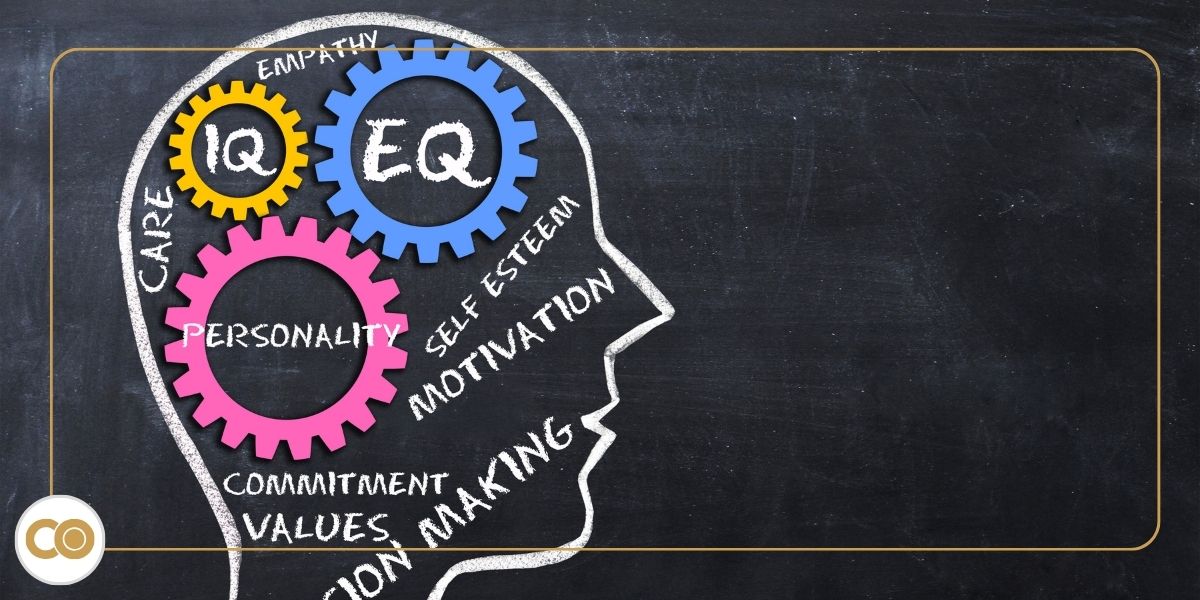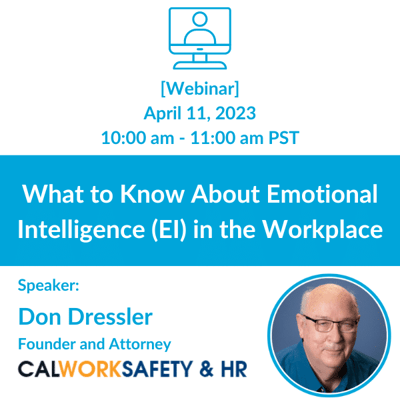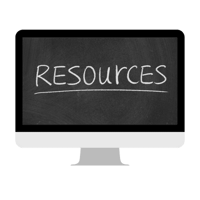5 Techniques to Improve Emotional Intelligence (EI) in Your Workplace
March 31st, 2023 | 6 min. read

Let’s start with a hypothetical scenario: A blind taste test.
If I handed you a cup of water, you could probably identify it. If I handed you a cup of milk, you could probably identify it. If I handed you a cup of cola, you could probably identify it.
But, if I handed you a cup with the water, the milk, and the cola mixed together, could you identify it?
You probably wouldn’t be able to recognize and identify the components of this strange beverage unless you had training in sensory evaluation. Instead, you’d take a wild guess.
Now, let’s discuss a real-life scenario: Interactions in the workplace.
You have an employee who is happy. An employee who is frustrated. Another who is sad. Angry. Excited. And so on.
You could probably easily identify each of these emotions in isolation.
But combine them in the workplace and, as with the aforementioned mystery beverage, recognizing and identifying individual emotions becomes more difficult.
Without Emotional Intelligence (EI) training, the workplace becomes an unfamiliar blind taste test of mixed emotions. And, wildly guessing on how to interact without any emotional insight can lead to problem after conflict after issue.
Here at Combined, our HR experts can help you improve the overall expression of Emotional Intelligence (EI) in your workplace and, as a result, reduce these problems, conflicts, and issues. With a little guidance, we can steer you toward using EI-based interactions to create a more perceptive, more positive, and more productive work environment.
In this article, we will explore Emotional Intelligence (EI) as a developed skill. By reading it, you will learn 5 techniques to elevate your team’s EI and collectively improve workplace interactions.
What is Emotional Intelligence (EI)?
Emotional Intelligence (EI) is the keen capacity to not only recognize and understand your own emotions but to recognize and understand the emotions others feel. It also involves applying this mindfulness to better manage your own behavior as well as your interpersonal interactions.
To put it simply, EI is the ability to:
- Harness your understanding of emotions
- Apply this understanding to engage effectively with others
- Use adaptive interactions to build, balance, and maintain better relationships
Why is Emotional Intelligence (EI) important in the workplace?
As an employer, you are probably wondering:
How does Emotional Intelligence (EI) impact your business?
Research shows that employees with high EI build, balance, and maintain healthy workplace relationships. Healthy workplace relationships are proven to be a leading factor in business productivity. Therefore, high workplace EI contributes to increased business productivity.
Here are a few statistics to back this statement up:
- EI is the strongest predictor of at-work success
- 90% of the top performers across all job types have high EI
- EI is 400% more effective at predicting professional capability than IQ
These studies prove that employees with high EI perform remarkably well in the workplace and drive business output.
If you are like most employers, you want the most qualified, capable, and performance-driven employees.
EI impacts your business, then, because it is an aptitude held by the most qualified, capable, and performance driven-employees.
To learn more about how EI impacts your business, read The Value of Emotional Intelligence (EI) in the Workplace.
How is Emotional Intelligence (EI) measured?
Now that you know the value of Emotional Intelligence (EI), you may be wondering how to quantify it.
Author of Wall Street Journal Bestseller, “Emotional Intelligence 2.0,” Travis Bradberry estimates that only 36% of people intrinsically have high EI.
So, how do you know if you have high EI? Low EI? In-between EI? Is there a scale you can step on and stare anxiously at until a digital number appears?
While there isn’t a physical scale that can assign you a quantitative EI result, EI is measured by proficiency in four soft skills:
- Self-awareness: The ability to understand your emotions and natural responses to them
- Self-management: The ability to control your emotions and regulate your responses to them
- Social awareness: The ability to understand others’ emotions and how they react to them
- Relationship management: The ability to use this understanding of others to interact effectively
Each of these skills is interrelated and all factor into the overall measure of EI. In other words, high EI means having a mastery of all four skills.
So, do you have high EI? Low EI? In-between EI?
The answer to this can be determined by assessing which of these skills are your strengths and which of them could use improvement (Yes, you can improve your EI).
Having high EI is not just a question of innate nature, it is an aptitude that can also be nurtured.
How is Emotional Intelligence (EI) learned?
I’m sure you’ve heard it said before – “Practice makes perfect.”
This logic is key to improving Emotional Intelligence (EI).
Studies show that by following mindfulness practices associated with each EI soft skill, you can actually learn proficiency in self-awareness, self-management, social awareness, and relationship management.
And because competence in all of these areas is used to measure EI expression, consistent and conscious application of concentrated mindfulness practices to everyday situations can enhance EI.
So, what are these mindfulness practices?
5 techniques to improve Emotional Intelligence (EI)
Here are 5 focused techniques that can help enhance your Emotional Intelligence (EI).
1. Define emotions – Assign a name to the way you feel
Labeling emotions helps to build a better sense of self-awareness.
Instead of dismissing individual emotions and your reactions to them under the umbrella of “a bad mood” or “a good mood,” take a moment to understand exactly what it is that you are feeling and note how this feeling is affecting you.
It may sound like a simple task, but truly recognizing and defining what you feel takes practice. But practice it enough, and you will be able to easily distinguish between your emotions and how you naturally respond to them.
2. Evaluate emotions – Question the cause of what you feel
Assigning a cause to a specific emotion can help you with self-management.
First, define how you feel, then examine why you feel that way – if you can isolate the cause of an emotion, you can appropriately address it. This will help you manage both your emotions and your effecting reactions to them.
In this way, you will have a greater degree of control over your emotions and can leverage this control to manage your corresponding behaviors.
3. Observe and identify emotions – Pay attention to the way others feel
Being able to notice and discern the emotions others feel will increase your level of social awareness.
At a fundamental level, emotions are a shared human experience – because you feel them, you can relate to others’ emotions. This means that just understanding your own emotions and the way you respond to them equips you to perceive and understand the emotions others are feeling.
But it is important to practice paying close attention to subtle verbal and nonverbal cues so you can estimate how emotions are affecting others’ behaviors. By observing and identifying others’ emotions and their emotional responses, you can assess how best to interact with them.
4. Regulate emotions – Consider the effect of what you feel
You can develop a heightened sense of relationship awareness with a focus on how collective emotions impact your interactions.
Imagine having a discussion on a frustrating topic when you are angry – without recognizing how your anger affects the way you participate in the discussion and regulating it accordingly, what started as a conversation could very quickly escalate into an argument.
Now, imagine having the same frustrating discussion while another participant is angry – if you don’t consider how their anger affects the way they participate and moderate how you interact with them appropriately, the conversation could again become heated.
Regulating your emotions involves exercising judgment to make intentional decisions that will facilitate positive interactions. By considering the effect emotions have on communication, you can guide the course of emotionally charged exchanges away from causing conflict.
5. Take ownership of your emotions – Accept responsibility for your feelings
While emotions are human nature, experiencing them is also personal.
The way you feel is your own. The way you respond to that feeling is yours to own. By taking ownership of your emotions and emotional responses, you accept responsibility for the outcome of both.
Accepting responsibility for the role your emotions play in the results of your interactions forces you to better manage your communication and behavior.
And, this accountability – as a culmination of practices in self-awareness, self-management, social awareness, and relationship management – is crucial to enhancing overall EI expression.
Elevate workplace Emotional Intelligence (EI) with these 5 techniques
Recall that Emotional Intelligence (EI) is an aptitude held by the large majority of top-performing employees.
By promoting these 5 mindfulness practices within your workplace, you can help your employees develop and strengthen this aptitude.
Next steps to improving workplace Emotional Intelligence (EI)
If you are here, you understand the value of Emotional Intelligence (EI) in the workplace and you want to better your business with a focus on it.
In this article, you learned 5 techniques to improve Emotional Intelligence (EI).
Here at Combined, our HR team can provide you with the resources you need to adapt and apply these 5 techniques within your business.

|
Want more information about Emotional Intelligence in the Workplace? Join the webinar to learn more. |
 |
If you are not yet ready to speak with a team member, you may find these resources helpful: |
This article is not intended to be exhaustive nor should any discussion or opinions be construed as legal advice. Readers should contact legal counsel for legal advice.
Topics:
.png?width=1125&height=426&name=Your%20paragraph%20text%20(5).png)
